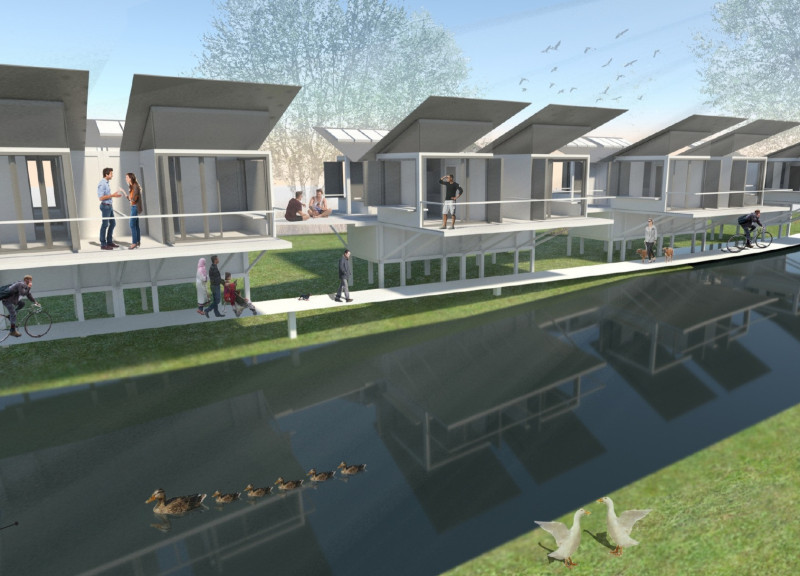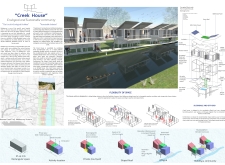5 key facts about this project
The Creek House project is located along the Moonee Ponds Creek in Melbourne, Australia, focusing on affordable housing with a strong emphasis on environmental care. It aims to provide a solution for those seeking accessible living spaces while also revitalizing the local ecology. The design incorporates modular units raised on stilts, which allows for better integration with the natural surroundings. This approach not only makes the most of the landscape but also encourages community interaction among the residents.
Modular Design
The layout comprises three prefabricated units that sit on a raised platform. Two of these units serve as living spaces with areas for sleeping and working. The central kitchen unit connects the other units and features a courtyard designed to collect rainwater. This arrangement helps use the available space efficiently while addressing the diverse requirements of residents. The inclusion of sliding folding shutters adds flexibility, allowing the units to adapt to different weather conditions.
Sustainability Features
A major aspect of the design is its focus on sustainable practices. The rainwater harvesting system enables the houses to operate off-grid, reducing reliance on local water supplies. A biogas system is linked to both the kitchen and a bio-toilet, which allows for effective waste management and resource recovery. Green roofs on the units provide insulation and support local wildlife, aligning with the project's goal of promoting environmental responsibility.
Community Integration
The Creek Houses are connected by shared spaces that encourage social interaction. These communal areas serve as venues for gatherings, helping to strengthen relationships among residents. By fostering social ties, the design not only meets housing needs but also creates a welcoming community environment.
Materials play an important role in the overall design. Corrugated sheets made from recycled Tetra Pak beverage cartons are used for the external walls. This choice ensures durability, resistance to various weather conditions, and safety from fire. By using recycled materials, the project emphasizes sustainability and shows how modern living can be both functional and environmentally aware.




















































